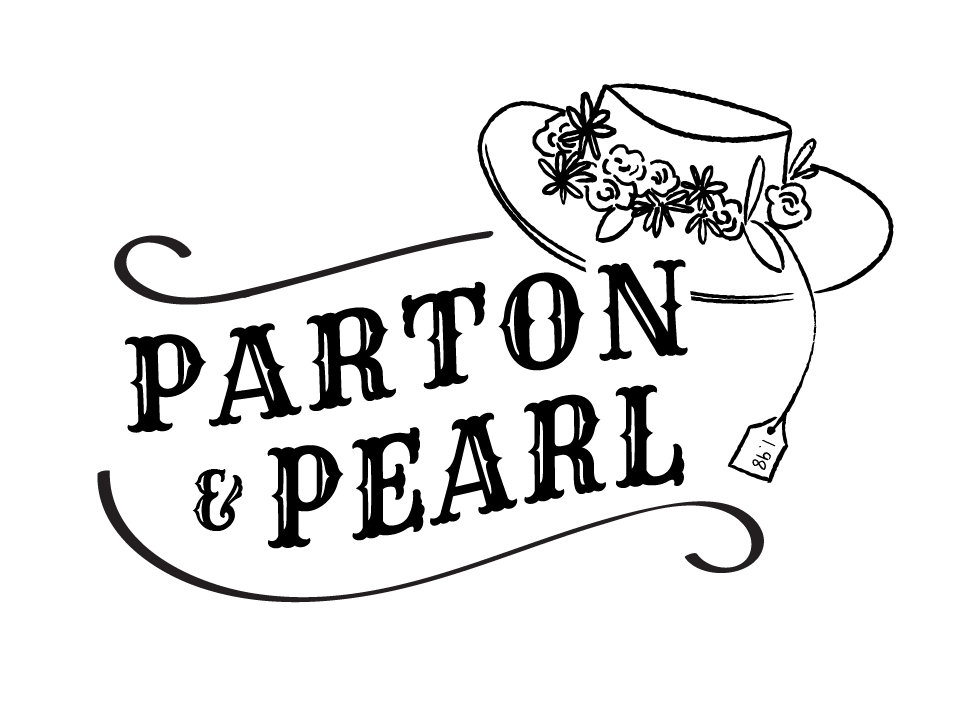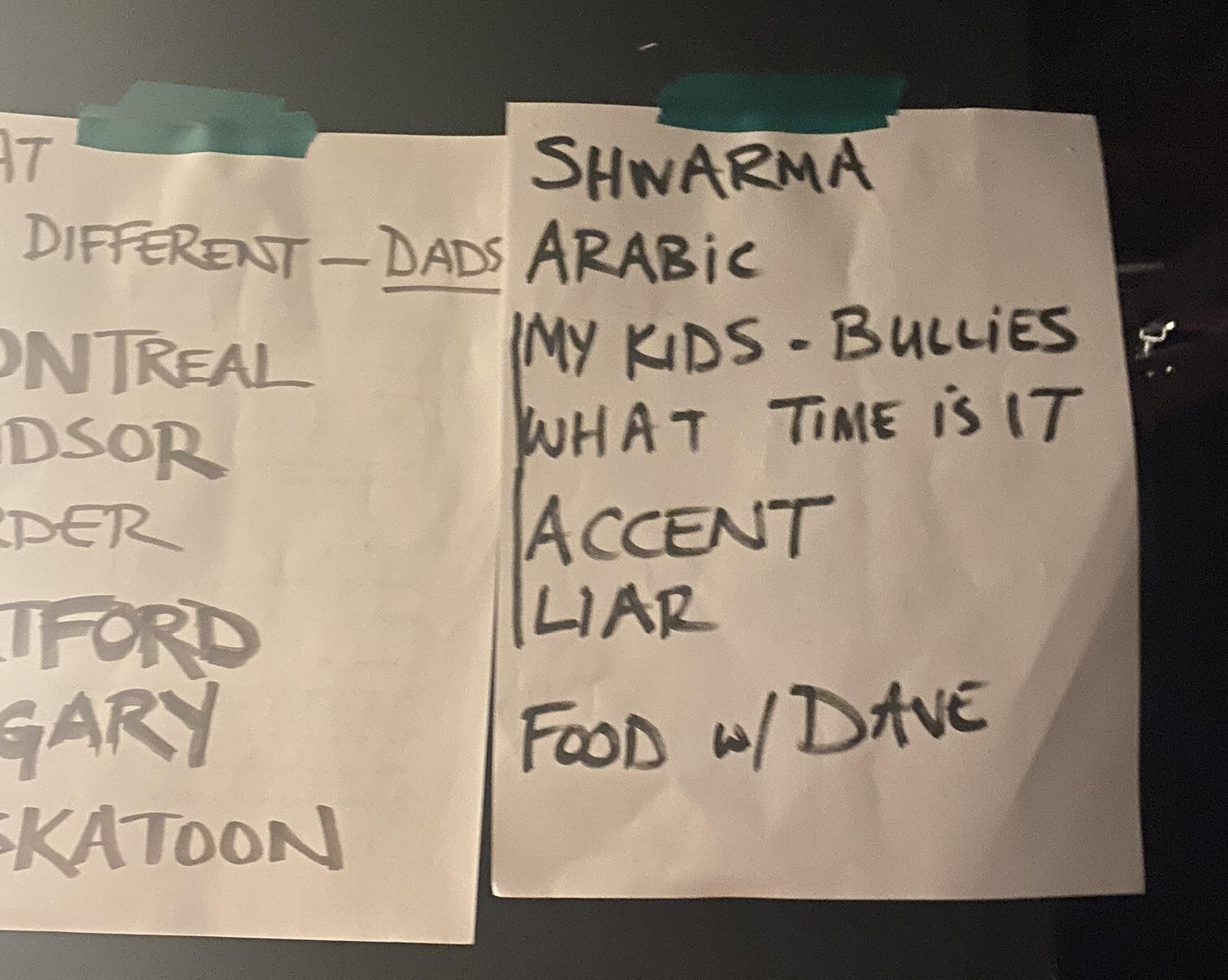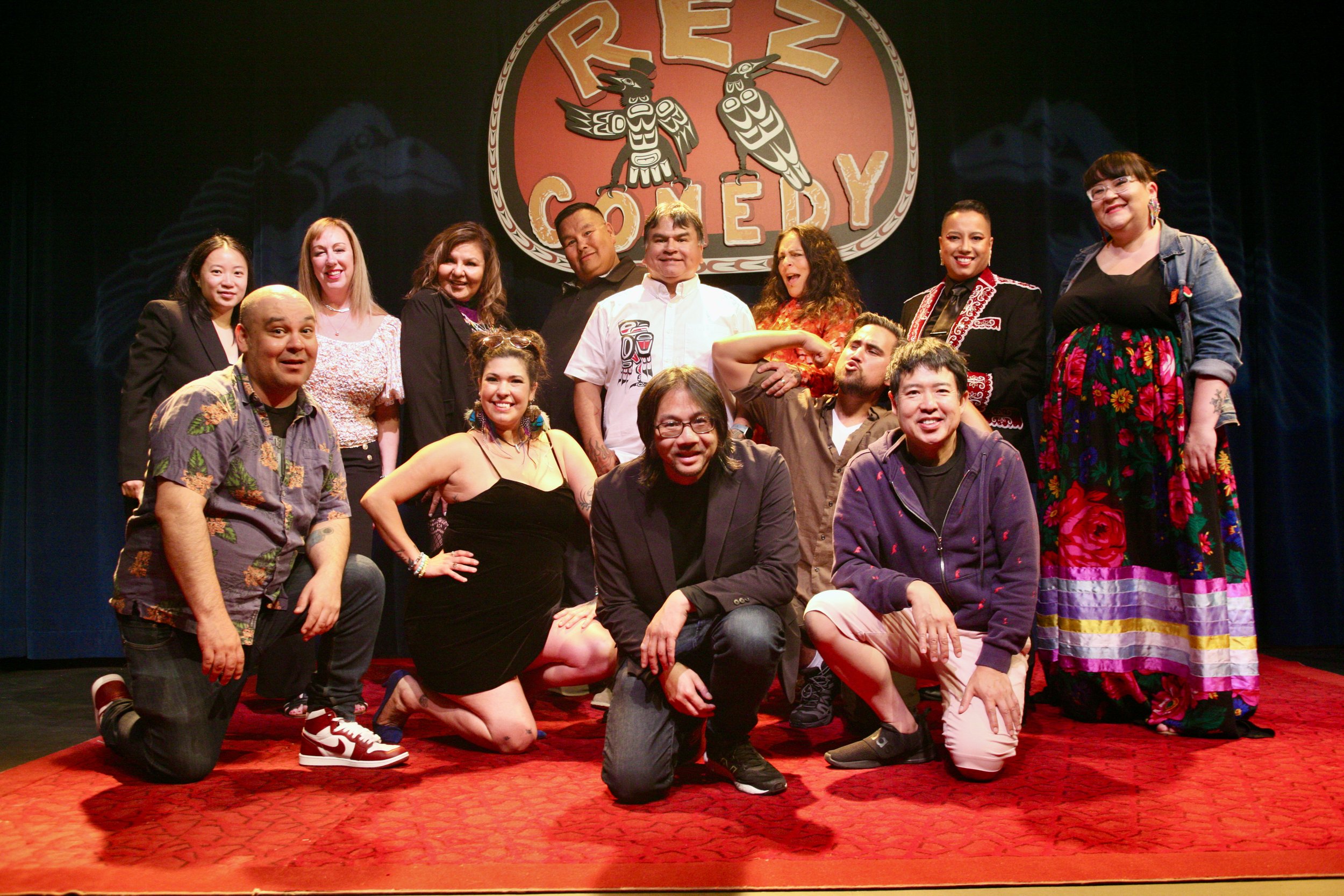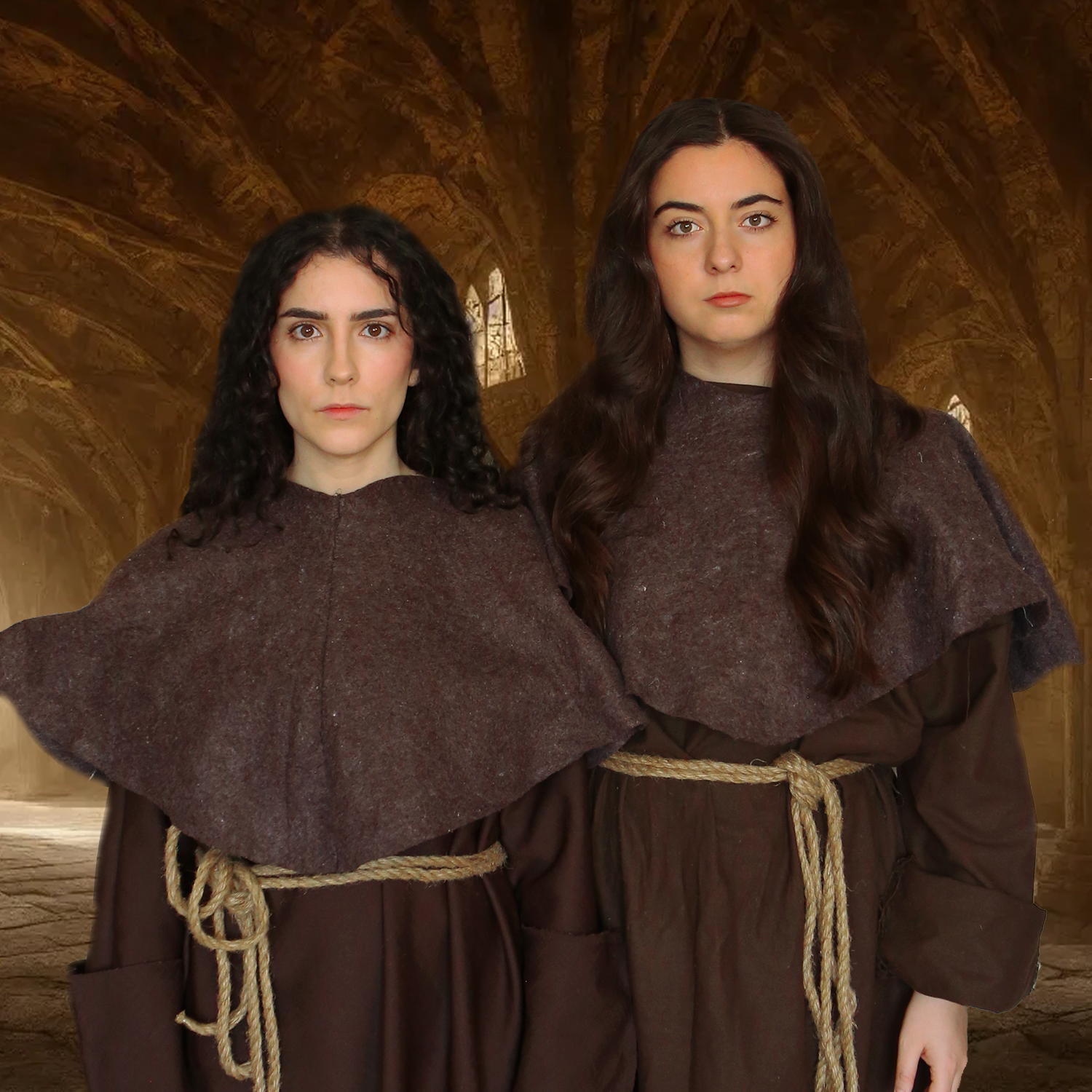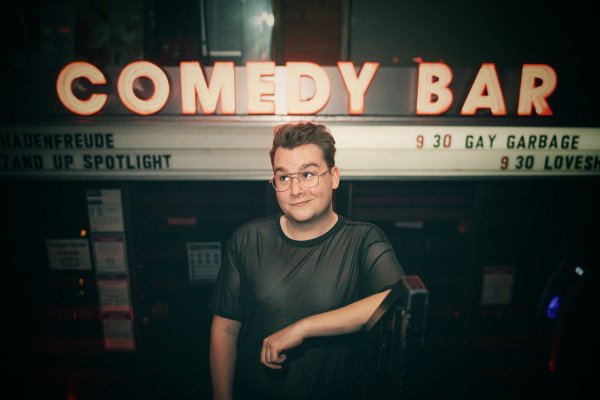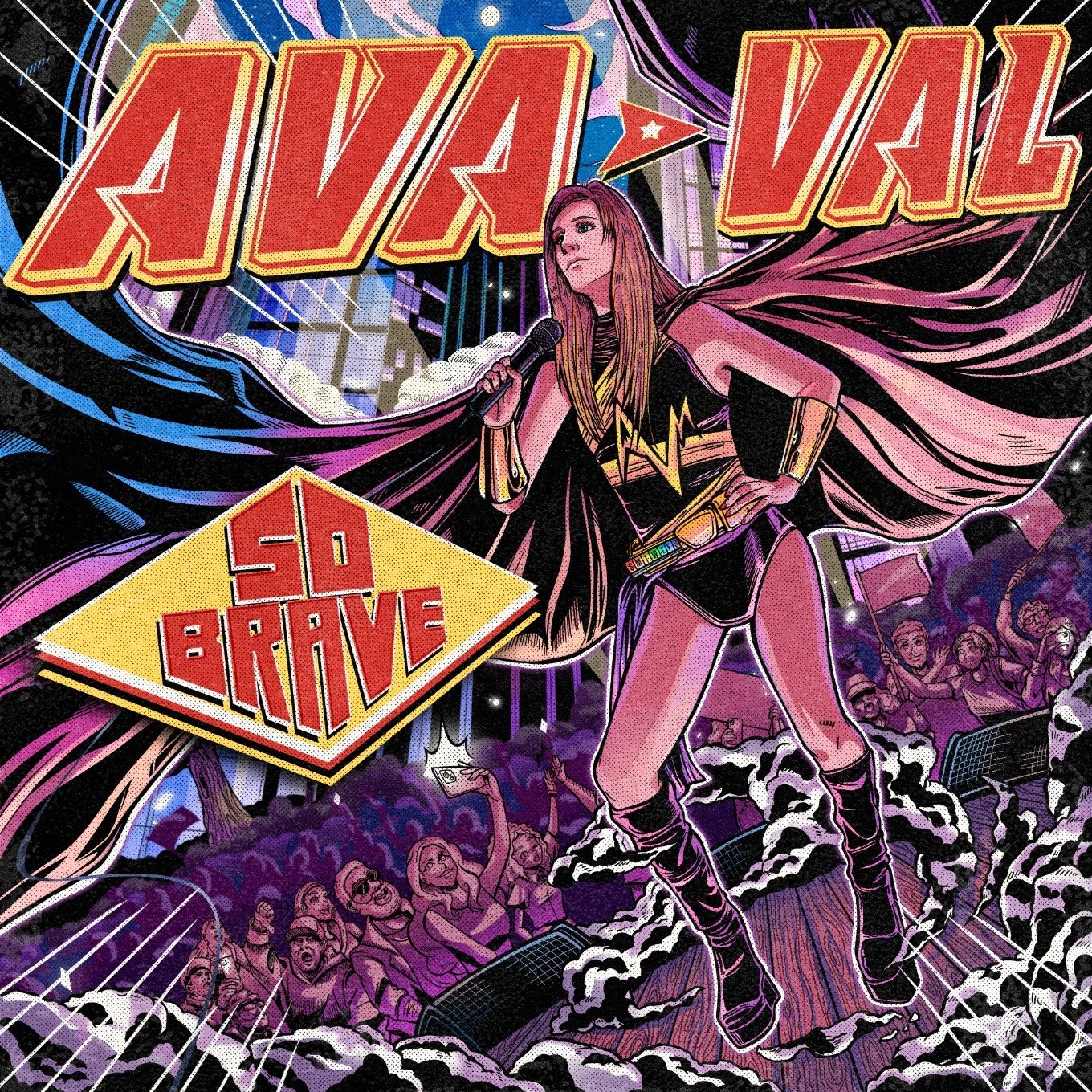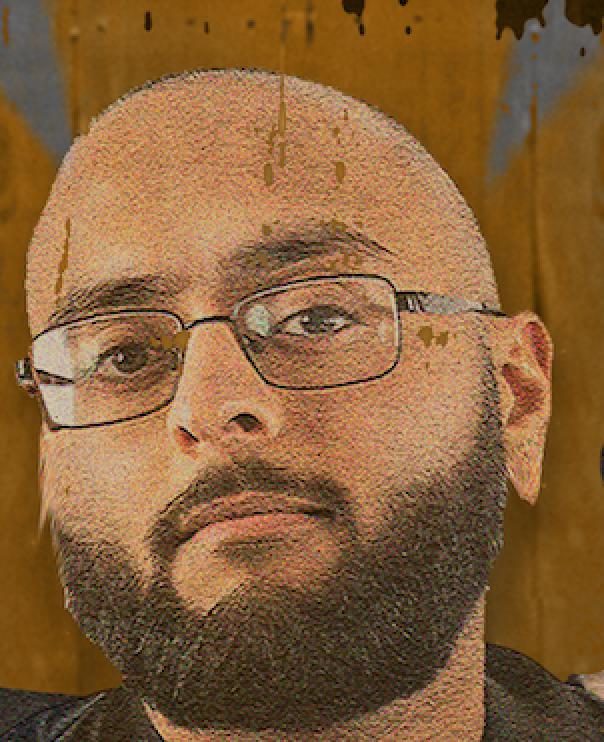"We became the best version of our true selves opposite each other on stage."
Nour Hadidi talks to Dave Merheje and Ali Hassan about their new album We Ain’t Terrorists
After years of touring their duo comedy act We Ain’t Terrorists across Canada, veteran comedians, and Canadian treasures Dave Merheje and Ali Hassan recorded their final show this past winter at Toronto’s Comedy Bar. They released the album on July 10th with label Howl & Roar, with a portion of proceeds going to the IDRF to help the humanitarian crisis in Yemen, as well as Black Lives Matter.
I’ve known both Dave and Ali for years, and yet I learned so much about them from our hour long conversation (which Ali endearingly asked his kids to be silent for). What started out as a solo project for Dave to be able to talk freely about his background and identity on stage turned into an amazing act by two of this country’s top comedians. The trust they have in each other on and off stage is palpable and heartwarming. We talked about Don Cherry, telling jokes in Saskatchewan, and our dads. I hope you read this interview, buy yourself a shawarma, and enjoy it while listening to the album. Dave and Ali insist that they’re not terrorists, but if that’s the case then how come they’ve held our laughs and hearts hostage?
The following transcript has been edited for length and clarity.
Nour Hadidi: First of all congratulations on the album, I laughed out loud so many times. And before we “start” start, I should tell people that I am a little bit biased because I love both of you as comics and as a duo act I think you guys are amazing.
Ali Hassan: Nour, that is very sweet and also completely unprofessional you can’t be biased as a journalist.
Hadidi: Okay, I can fix that. It sucked and we’re gonna talk about why it sucked. Does that work?
Hassan: Also unprofessional.
Dave Merheje: The intro is very funny. I'll tell you that.
Hadidi: I’ve never laughed at the words “saloon door” more in my life. And I love how many times Dave says the word whack. He just says it so casually.
Hassan: Yup. Whack and Dope. That’s the spectrum. It’s the whack-dope spectrum.
Merheje: I think I got too excited. And you know when you’re doing stand-up, you write and then you edit yourself and with this I wasn’t editing myself. I was too loose. To the point where I was saying words out of genuine excitement.
Hadidi: But also I feel like that’s why when I was listening to it, it was like I was listening to two friends hanging out. Because you were using words you use in everyday life I felt like I knew you more.
Hassan: It’s supposed to be a comedy act, but I think both Dave and I have been told by friends that the difference between the act and the person is very, very little. The only thing different that Dave used to do was after a long rant he would throw his hat on the ground which I didn’t really see a lot of.
Hadidi: He did that with the Don Cherry joke. I remember because I was there. We should also tell people that I opened for you guys at the taping so I am VERY biased.
Hassan: This is the height of irresponsible journalism.
Hadidi: We did our best! But Dave I remember walking home that night and quoting your Don Cherry joke to someone.
Merheje: Yeah that wasn’t a joke at all, it was bottled up frustration for years. Because I used to watch Hockey Night Canada with my dad, and Don would come on after the first intermission. And when we were talking about him on stage I just thought . . . he’s a fucktard - can we swear on this?
Hadidi: Sure, I'll put it in.
Hassan: Dolly Parton dude, original badass you can do whatever you want on this fucking thing. I feel like Don Cherry was your kooky uncle, and then he became your crazy uncle, and then he was your uncle you’re kind of embarrassed of.
Merheje: They should have fired him a long time ago. When people ask should his job be at risk? YES it should be at risk. He’s on TV every Saturday night talking to millions, why would I want my kid to watch your ignorant rants in your ugly-ass suits? That’s what bothered me the most, those hideous atrocious suits.
We Ain’t Terrorists set list at Comedy Bar. Photo by Nour Hadidi.
Nour Hadidi: I think it’s interesting we’re talking about this because on one part of the album you mention that the the reason you created We Ain’t Terrorists was to not have to talk about being brown and to talk about whatever you want. But you chose to talk about this and put it in.
Dave Merheje: You know where that came from originally . . . a booker saw my set that was mostly about me being Middle Eastern and ethnic. I wanted to express that. But then the booker pointed that out, so for my callback I didn’t talk about my background and I didn’t do so well. I thought it was off putting what he said. I don’t want to have to answer to these kinds of comments. When I created this show, I wanted to be able to do my comedy freely.
Hadidi: And how did you decide which jokes from that night made it on to the album?
Ali Hassan: We had to make the hard calls to drop some jokes that were dear to us. The album, we both agreed, would be bits that are great on their own, so if they got played people could enjoy them as standalone jokes but we also wanted the album to be a journey. After many many listens/numerous revisions, I think we have a product that we can be very proud of, that we made all the right decisions on.
Hadidi: And I love that you have bonus content at the end.
Hassan: And I wanna apologize Nour. I’m sure when you saw bonus content you thought ‘oh they kept one of my jokes in’
Hadidi: Thank you Ali, I wanted to bring that up and I’m glad you were the one to do it. You’ve both released comedy albums of your own. From a creative standpoint, what’s it like releasing one with another comic, and having that comic be your friend?
Hassan: I think it’s critical that that person be your friend. We’ve all seen or been part of things where even when you’re good friends but then you get on stage with them you don’t have that charisma off stage that we do on. I actually have to credit Dave for that because a lot of people . . . I would rub them the wrong way. But nobody can quite take a joke and a ribbing like Dave Merheje.
Merheje: Very seldom do I get frustrated with Ali, as far as the ribbing goes. If the joke is funny and we’re having a good time and he’s taking a dig at me in a comedic way, that’s proper with no malice behind it then why not? I’m more excited about the end product. Sometimes I play it up too because it’s funny around Ali. If I do something stupid I’ll tell him on purpose because I know that he’ll take is somewhere funny. And to me that’s a better time. He knows how to reel it in, and it takes a real talent to know how to come in and come out and guide.
Dave Merheje and Ali Hassan on stage at the album taping. Photo by Krissia Valiente
Nour Hadidi: You know each other so well because you’ve been friends since 2008, that’s 12 years of friendship but also 12 years of being professional comedians. So what was it like from the first time you did the show in terms of your friendship and skill level as comedians, to the last time you did it?
Dave Merheje: Watching Ali, I love his organization and I trust him. If he hosts the show I know it’s going to go proper and the energy is going to be right and the way he brings up comics. That’s the guy I want to steer the ship. Over time Ali’s material has matured, I think his content grew when he started talking about his kids and family. That's been my favourite material of his is when he talks about his kids and his wife which was years after we started. So watching that growth is amazing, and as a duo we learned each other’s timings and personalities. He knows when to cut in and cut out. But he also knows how to add tags. The way he organizes it makes it a lot stronger.
Ali Hassan: I think at the beginning it felt experimental. Let’s see what this is all about. When it wrapped up I was filled with pride, to go from just a host to standing on stage with Dave. I weaseled my way in and now the guy can’t get me off stage. I feel proud of what we were able to organically create. We became the best version of our true selves opposite each other on stage. Part of it also was like we should get out while we have something good. God forbid we do the show 10 years from now we’re still doing this show and just be two old guys shitting on each other not being funny in room in Calgary.
Merheje: Leave Calgary out of this man.
Hassan: I love Calgary, they gave us half an act buddy.
Hadidi: What are some of your most memorable shows? Because you have toured this act across Canada.
Merheje: Windsor was crazy because of my dad. But Ali I would say Saskatoon?
Hassan: Yes
Merheje: It was the first show we did when we started. We went to Saskatoon, the Broadway Theatre there was amazing, and the people who came out were amazing. We were not supposed to stay together on stage I believe?
Hassan: No, we were not. The plan was for me to warm up the crowd for maybe 20 minutes. Then Dave would come on for 30 and then I would join him again at the end and talk about stories of us travelling. But somehow I don’t know how it happened, I just never left. And Dave, it didn’t feel like he wanted me to leave.
Merheje: Yeah I didn’t want him to leave.
Hassan: When I would try to he would say “wait wait Ali what about this”. And also we were there for a full day and a half before the show, so that’s like three or four restaurants and we were meeting all kinds of weird characters and having hilarious experiences in Saskatoon and it made sense for us to talk together about that. The crowd was the best. it was hard to leave the stage and it was just the best. The crowd was the best. The venue was so good. We’ve been saying for years if we could bottle up that show and take it with us. It was really magic. It was pure magic.
Merheje: And also remember the Toronto Harbourfront (Centre) show? That was amazing too. It just popped up on Facebook. We were performing by the water, the city we both came up in. And it wasn’t supposed to be a duo act either.
Hassan: And what these two shows have in common is how the venue treats you. The way the venue treats you really sets up something. A few years ago I would have been like who gives a shit. I am me, this is my material, it's just me against the world. But there’s something about how you are in the room, and the way they set you up. You feel welcomed and valued and I swear it’s gotta have an effect on your comedy. That's something both Saskatoon and Harbourfront had in common. They made us feel like champs and we performed our best. We were relaxed.
Hadidi: And also I opened for you guys that night! I’m seeing a trend here I open for you guys and you do well...
Hassan: There is a common thread if only you were in Saskatoon you would have been part of the tour.
Hadidi: When was the Saskatoon show?
Hassan: It was in January as part of the Winterruption Festival.
Hadidi: You were in Saskatoon in January???
Hassan: That’s what made it so cool, 300 people came out in January. And it’s so cold you feel it in your bones. My parka is good up to -30 and it’s starting to fail in Saskatoon. We were getting up early to do these morning interviews and the sun in Saskatoon isn’t even up until 9am.
Merheje: And I had a weakass winter jacket I was freezing. I wasn’t even wearing a good jacket.
Hadidi: Oh I get it I’ve performed once in Saskatchewan in February. It was the worst gig of my life. I cried my eyes out and I wanted to quit comedy.
Hassan: Didn’t you say that about Winnipeg and Cleveland?
Hadidi: No, never Winnipeg. It was only Waterloo where I got hate-crimed.
Hassan: You got hate-crimed in Waterloo and it wasn’t as bad as Saskatchewan.
Hadidi: No it wasn’t. The people were nice but the local DJ intro’d me onto the stage. It was a gymnasium. He doesn’t say any of my credits, he just says she’s here from Toronto and she thinks it’s cold. I gotta work my credits into my act. Do you know how demeaning that is? I bomb for 45 minutes. I get off stage no one from the table is making eye contact with me.
Hassan: I’ve been there. But in Houston I’ve had that experience.
(Back Row) Dave Merheje, Moe Ismail, Ali Hassan (Front Row) Allison Dore, Nour Hadidi. Photo by Nour Hadidi
Nour Hadidi: These hell gigs. I’m wondering if you guys touring together is a survival thing? As a brown person, because they didn’t relate to any of my jokes. They were all white. Was it a thing where you say I’m gonna go with my buddy we’re gonna go in the winter, I'm gonna have him by my side and it’ll make touring less harsh?
Ali Hassan: It wasn’t a thought beforehand but now you say that there’s nobody I’d rather bomb with than Dave Merheje. Because nobody can take away those memories from you. You can take away my dignity and integrity on stage but you’ll never take away my memories with Dave.
Dave Merheje: Remember we were bombing our show in Edmonton? It was sold out remember? It was packed and I was bombing.
Hassan: He was bombing because it was a very heavy CBC older audience. So then I have to look at these tables and be like “Aunty I’m sorry can I call you Aunty? I had no idea he was gonna talk about this stuff!” even though he had talked about it in Saskatoon and Calgary, I had to pretend like I had nothing to do with this guy and to sell him down the river to preserve some of the integrity of this act.
Merheje: We had my cousin. Well not my cousin, I call him my cousin, but my childhood friend Anthony came to the show. It was at a college but he got lost in the building and missed the show but then he came to our Edmonton show and brought us Shawarmas after the show so that was nice after we bombed.
Hadidi: How many times do you guys think you said the word Shawarma on the album?
Merheje: I love shawarma though.
Hassan: Not only that. We love shawarma. Shawarma is part of your culture dave, and there’s baba Boustan. He was my second father, a shawarma owner basically raised me. And we’re also offended by bad shawarma. It interweaves with so many sections of our life.
Merheje: Because both of our cities Montreal and Windsor shawarma places are huge. The main strip in Windsor if you try to come in as a new food place like burritos you got pushed out. I never saw them last. But there were also seven shawarma spots since I was a kid. That’s why I talk about it so much. Every time I go back home I visit these places to see how they grew. I’ll ask my brother what’s the popping shawarma place he goes to Hamoudi's. I ask where is it? And he says it’s not downtown, and I go . . . really?
Hadidi: Well Dave, you have one of my favourite Shawarma jokes on your Good Friend Bad Grammar album so I’m wondering - how do you decide between keeping a bit for your own album and having one you wanna do with Ali?
Merheje: Building the act we discuss what we want in and out. And he has some jokes he wants to put on his album.
Hassan: It’s an interesting question that only a comedian would know to ask Nour. Because I was gonna do this bit and sometimes the answer is I already did that so no. Or I’m planning to do it on my next album so no. Same with me, like I’m gonna put this on my show Muslim Interrupted where I’ll capture the audio and make it into an album eventually.
Hadidi: Well this is a testament to how good you guys are because the fact that you have a solid 45 minute album that doesn’t contain core jokes you have on previous and future albums is amazing. I’ve only been doing comedy for eight years and I still don’t have an album out and the fact that you have all this material is really inspiring.
Hassan: That’s nice of you to say but also what the fuck are you waiting for on that album?
Hadidi: I was going to record one this year but the pandemic happened. Ok we’re creeping up on an hour here. I want to ask you both to talk about your dads. My dad has only been to one show of mine and it did not go well. How do you think your dads will react to the jokes about them on this album?
Hassan: Nour, great journalism again. Not researching the fact that my dad has been dead for eight years. Thank you for doing your due diligence. Parton and Pearl will be hearing about this.
Merheje: Second time in a week.
Hassan: People have to start recognizing that we don’t all have dads!
Merheje: You know what, my dad is Ali’s dad for this album.
Hassan: My dad was definitely bewildered by the fact that I wanted to be a chef and a comedian. His world as a professor was seniority, pension, security - these are the things that mattered to him as an immigrant with a low risk tolerance. But before he passed away, Bill Brownstein at the Montreal Gazette wrote an article about me, and my dad read that paper everyday and so to see his son in the newspaper I think he saw some hope. “My son is being recognized for stuff.” I think the CBC had recognized me for some things at that time and my dad was a big CBC fan and I think he liked that. It’s tough my dad was an academic, he was also a short story writer and a poet. My maternal grandfather is the father of prose poetry in Pakistan. So I come from this lineage where it would be a disappointment if 15 years from now I would be talking about anal warts on stage. So I’m actually very happy and proud. Now if you hear me shit on my kids you’ll ask are you proud of this? But it’s honest and it’s raw and it’s not overly vulgar. I’ve made a place for myself in Canadian comedy and that makes me happy and I think my dad would be proud.
Merheje: I second that. Knowing that about Ali. He’s a staple at CBC. Host at Canada Reads. And a working actor and comedian in Canada is not an easy thing to do. I’m proud and I think his dad would be immensely proud. I mean I don’t know him personally . . .
Hassan: My dad is dead Dave that’s why you don’t know him personally.
Merheje: Well my dad would be proud of you even though he doesn’t know your name.
Hassan: Two days of staying at the Merheje household and he doesn’t know my name.
Merheje: My dad comes to all my shows in Windsor. He won’t get offended by this album. I have no worries about him listening to it. Sometimes I think he’ll tell me stuff on purpose just to put in my material. He’s the sweetest parent to have if you’re doing stand-up comedy.
Hadidi: Both you and Ali are lucky to have him as a Dad. And what do you think young brown kids or comedians are going to feel when they listen to your album? I know this is a heavy question and you don’t really think of the implications of someone listening to your album. But I think of myself when I started comedy and looked up to you guys, or maybe someone who hasn’t heard themselves in comedy, what do you think they’ll feel when they listen to it?
Hassan: I don’t know that we can speak to what they’re going to feel. I remember you telling me Nour, when you started how it felt to see me perform in Montreal and tell yourself . . . oh I can do this. We all need that. But if you spend any time in my home you’ll see that I’m not inspiring my kids on any level but to do that for strangers is great. I’ll take that any day.
Sold out box office sign at Comedy Bar. Photo by Nour Hadidi
Dave Merheje: When I got to Toronto the roster on Yuk Yuk’s was predominantly white males. I remember they did a showcase in Mississauga and all ethnic comics were on the show and it was like they bunch us all together to get us out of the way? And even if they didn’t do that, it looked like they did that. So now not just us but other acts in Toronto who are ethnic and our putting out albums yeah it would inspire me if I was starting. I could talk about my experience. Ali I don’t know if you felt that?
Ali Hassan: Yeah man, the first time I saw Sugar Sammy and it was the late night danger zone as part of JFL. And he came on but I felt this overwhelming sense of pride. You got made fun of as a kid with your ethnic background, like oh you’re cab driver and this and that or doctor or lawyer. But as a creative person I loved seeing him on stage made me happy.
Merheje: And when I saw Russell Peters. I saw how he was packing out downtown Toronto. The energy in the room. I saw him in the back waiting to go on. I wasn’t even on the show and watching him go where he went was an inspiration as a Lebanese guy.
Hassan: He’s the godfather you cannot understate his influence on a whole generation of comedians. And I know I said my Montreal Sugar Sammy guy and you had to represent Toronto Russell Peters. It’s always east vs west with you Dave. It’s always a beef, it's always a war. You listen to too much gangster rap.
Merheje: I’m a fan of Sugar too, he bought my DVD when I opened for him at York University.
Nour Hadidi: Listen he’s the opener he needs all the support he can get. Openers need these acts of kindness, look at this free t-shirt I got from your show.
Merheje: We gave you that for free?
Hadidi: Wow it feels good to feel appreciated Dave. Is there anything else you’d like to say before we wrap up?
Merheje: We were really happy to work with Howl & Roar on this. They’re an amazing record label, who along with Comedy Records, are doing amazing work and putting out Canadian content and working with Canadian comedians. So I’m glad we got to do that.
Hadidi: Great. Ok thanks guys it was great talking to you and congratulations again and thanks for the t-shirt!
Dave and Ali would like to thank: Allison E. Dore at @howl_roar Records; and their sound editor Matt Ouimet; Gary Rideout Jr. at @comedybarto; Album Artwork by @builtbybronze; VFX by @torontomanwill; Photos by Genevieve Pellettier @genvieverobin; and Exceptional Journalism by Nour Hadidi @nourhadidi (this was added without their permission)
We Ain’t Terrorists was released July 10, 2020 on Howl & Roar Records.
Listen to it here
Don Cherry · Ali Hassan and Dave Merheje We Ain't Terrorists ℗ Howl & Roar Records
